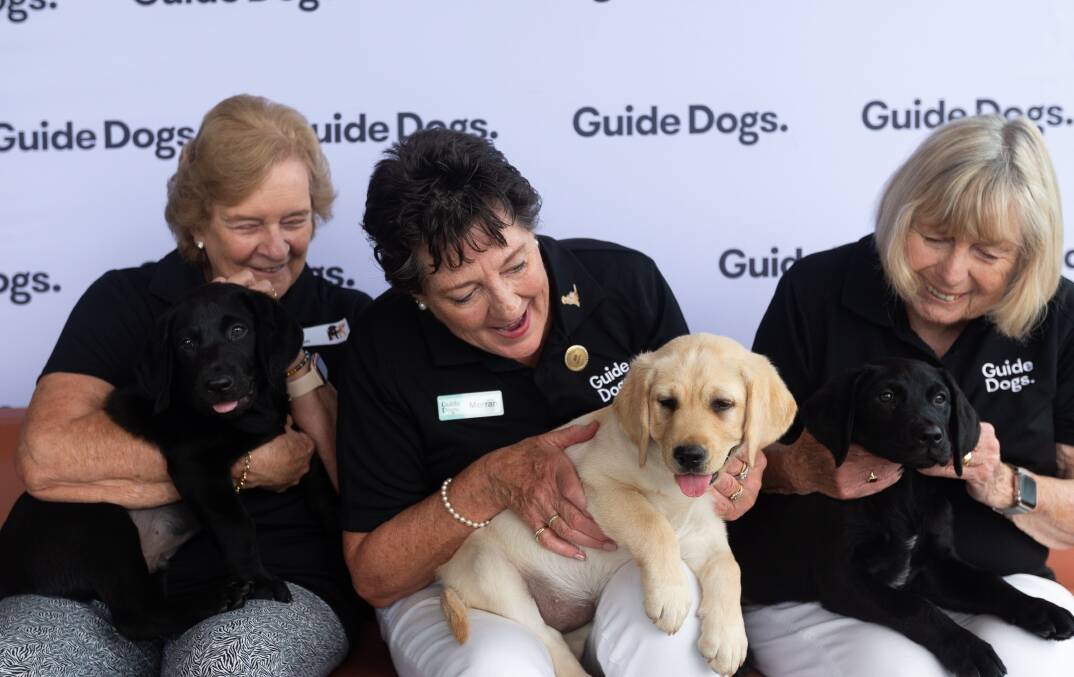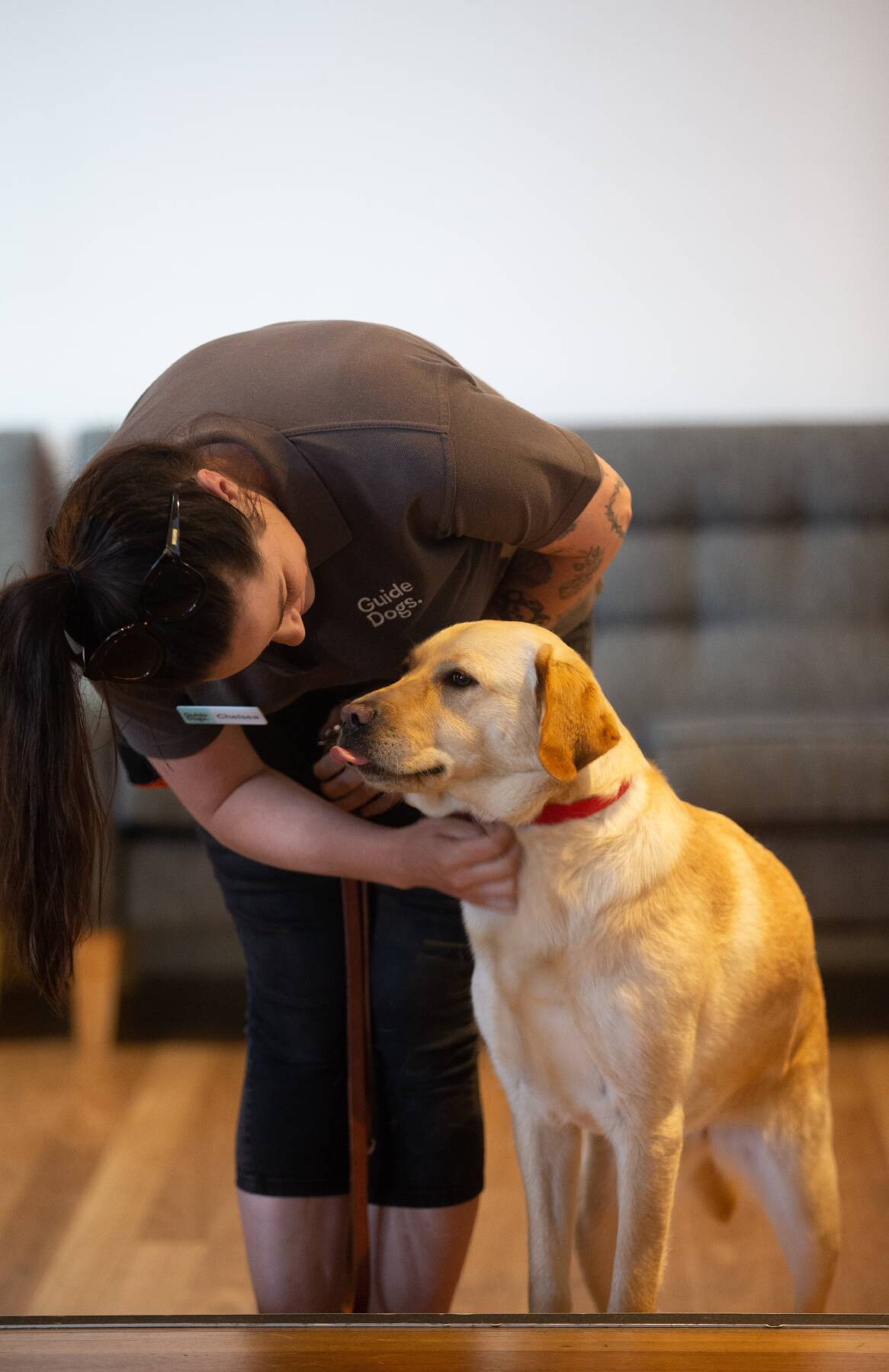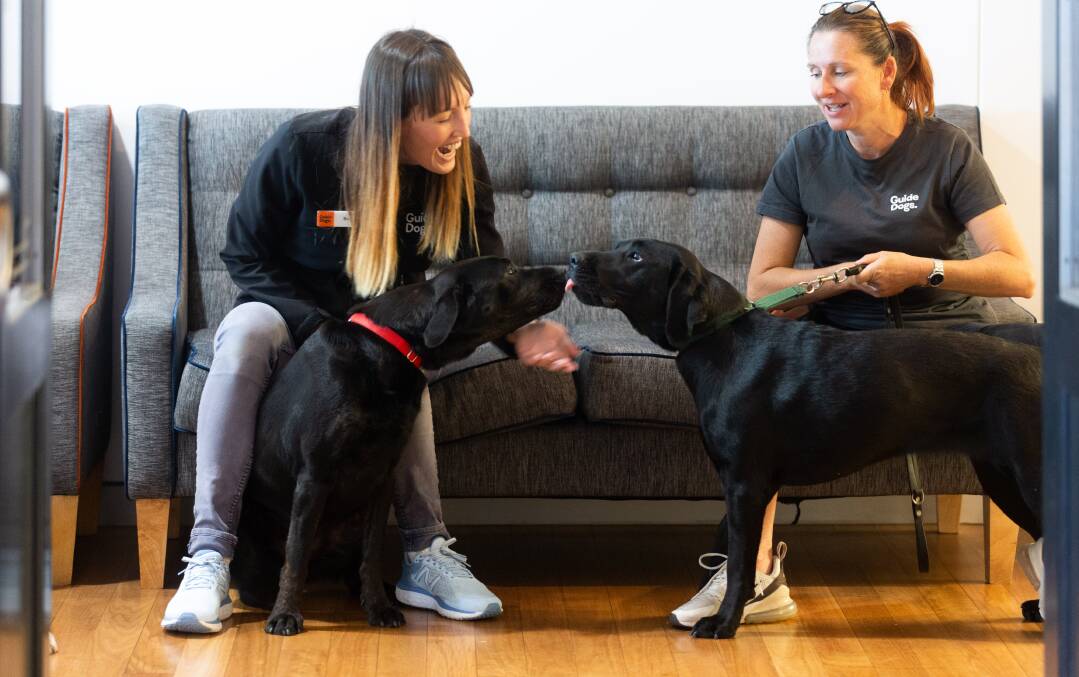Saskia may look like any other dog but to the blind community, she is a new set of eyes and a lifetime of independence.
The yellow labrador graduated from guide dog training on Wednesday - an occasion more than a year in the making.
Trainer Chelsea Cosgrove has spent almost every day with Saskia since May this year.

"Every day is different and we spend pretty much all day, everyday, with the dogs," Ms Cosgrove said. "In early stages, we'll have really short training sessions with the dogs where we teach them how to find learning fun."
This progresses to complex tasks like navigating city streets, cafe scenes and interacting with children as the dogs age.
And Saskia's road to being a guide dog started almost at birth, when she was raised by dedicated puppy handlers and picked from a rigorous selection pool.

Saskia graduated from training with fellow pooches Questa, Unix and Treacle on Wednesday, along with two therapy dogs Natty - who will work in a special education classroom - and Mac.
Saskia will soon be paired with a blind or vision impaired person to guide them through each day.
But she won't be given to just anyone. Trainers work with guide dog recipients to find the best match for them. A "pocked rocket" dog is often a good fit for a city dweller, while a cuddly canine might be given to someone who spends a lot of time at home.
For many, a guide dog is their first shot at real independence.

Sarah Hirst has been legally blind her whole life. She is proficient in using a cane to get around but said her guide dogs have unlocked the ability to work, travel Australia and raise her two children with ease.
Ms Hirst's third guide dog, Zali, is "quite cheeky" and loves stealing vegemite sandwiches from her children's lunch boxes.
"[Life] is really busy," she said. "We travel a lot. [Zali] is amazing at following the kids and she keeps me safe around obstacles. She comes to work with me as well.
"She does all that but when the harness comes off, she's straight but to doing what she loves. She loves going to the park. She loves carrying the kids teddies around in her mouth," Ms Hirst said.
Dogs like Zali and Saskia take about two years and $50,000 to train. There are currently more than 250 working dogs across NSW and ACT, amounting to over $12million worth of training and care.
One woman who understands these costs intimately is Merran Rudder, who spends "everyday" stitching hand towels, pin cushions and other sewn goods to be sold as fundraising items for Guide Dogs.
Her team attends two markets a month and has raised more than $1million in the last 40 years.
"I enjoy doing it," Ms Rudder said. "And it is important."
Almost 60 per cent of donation-based funding for Guide Dogs comes from bequests and half of all dogs are trained using this money.
You can learn more at nsw.guidedogs.com.au







